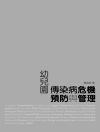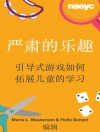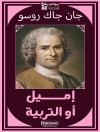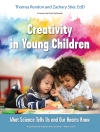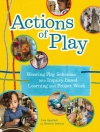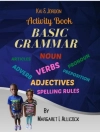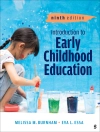Meaningful, developmentally appropriate observation and assessment are core components of every early learning setting. In today’s world of data collection, high-stakes testing, and accountability, it is vitally important to understand how to effectively assess young children in familiar settings; use this data to inform the curriculum; and communicate this information with staff, families, and communities.
Carrying on the work of the first volume of Spotlight on Young Children: Observation and Assessment, this book brings together all-new articles curated by Hilary Seitz, director for educator and leadership programs in the California State University system. Organized into three distinct parts, the contributions
Each article in this collection is accompanied by questions to prompt deeper thinking on the content. With this resource, continue to grow your understanding of how observation and assessment can guide your instruction and promote children’s learning.
Cuprins
Introduction
Hilary Seitz
Part 1: Purposes of Observation and Assessment
Foundations of Assessment for Preschool Settings
Catherine Scott-Little, with Kathy L. Reschke <br>Meaningful Assessment and Documentation: How Directors Can Support Teaching and Learning <br> Debbie Lee Keenan and Iris Chin Ponte <br>Assessing Agency in Learning Contexts: A First, Critical Step to Assessing Children
Natacha Ndabahagamye Jones, Amber T. Fowler, and Jennifer Keys Adair <br> Part 2: Strategies for Observing and Assessing <br>Authentic Assessment: A Strengths-Based Approach to Making Thinking, Learning, and Development Visible <br> Hilary Seitz <br>Anecdotal Records: Practical Strategies for Taking Meaningful Notes <br>Celeste C. Bates, Stephanie M. Madison, and Hayley J. Hoover <br>Bringing Observation and Documentation to Life in Infant and Toddler Settings <br>Rebecca Parlakian <br>Unlocking the Potential of Data-Driven Coaching: Child Assessment Evidence as a Guide for Informing Instructional Practices <br>Christine M. Snyder and Holly P. Delgado <br>Effective Kindergarten Readiness Assessments: Influencing Policy, Informing Instruction, and Creating Joyful Classrooms
<br>Elliot Regenstein, Maia C. Connors, Rio Romero-Jurado, and Joyce Weiner <br>Photographs and Learning Progressions:
Supports for Intentional Assessment and Instruction in Mathematics <br>Sarah Roller Dyess, Elizabeth Petit Cunningham, and Katherine Ariemma Marin <br> Part 3: Assessment Practices to Support Inclusion <br>Assessing Opportunities to Support Each Child:12 Practices for Quality Inclusion <br>Camille Catlett and Elena P. Soukakou <br>Embedded Learning Opportunities for Children with and Without Disabilities <br>Christan G. Coogle, Emily M. Rose, Jennifer R. Ottley, Jennifer A. Brown, and Mollie K. Romano <br>Authentic and Meaningful Developmental Screening in Early Childhood <br>Marisa Macy and Stefano J. Bagnato
Enhancing Toddlers’ Communication Skills: Partnerships with Speech-Language Pathologists
Janet L. Gooch
Despre autor
Hilary Seitz,
Ph D, is director for educator and leadership programs in the California State University system. She advocates and supports statewide efforts to support early childhood education and the new California PK–3 Early Childhood Education Specialist Instruction Credential. Dr. Seitz is professor emerita in early childhood education at the University of Alaska Anchorage. Her research areas have been in early literacy development, collaborative practices between families and schools including culturally responsive pedagogies, emergent curriculum development, documentation, authentic assessment, and social constructivist learning theories inspired by Reggio Emilia practices.


